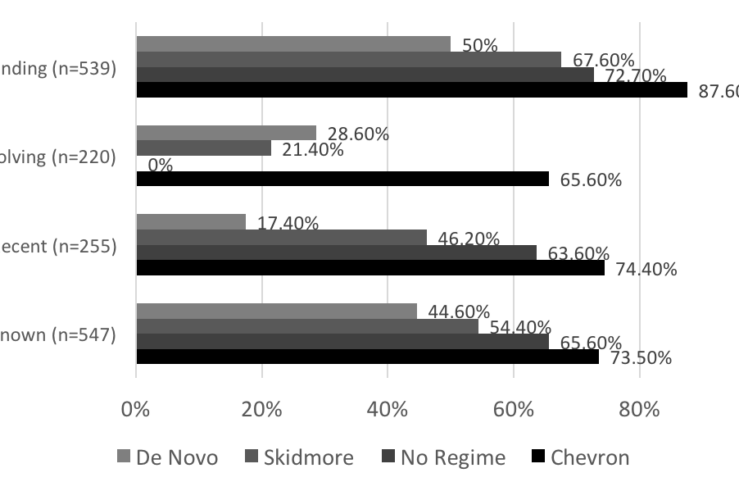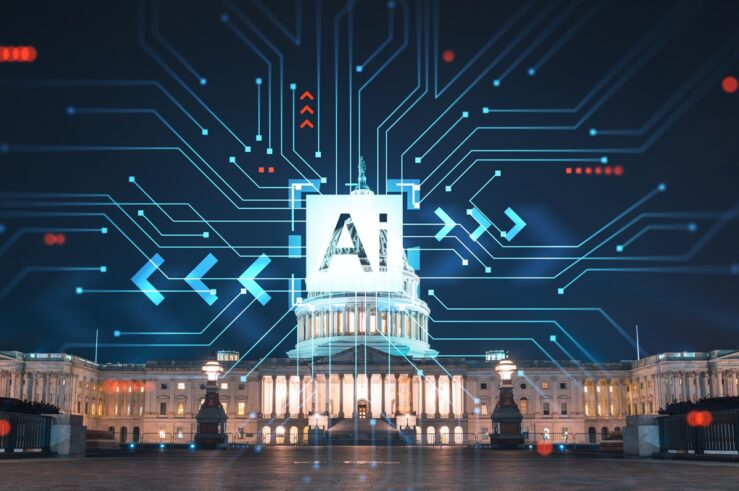Showing results for: “digital markets act”
GMU Law & Economics Center Workshop on Empirical and Experimental Methods for Law Professors
Details are available here. It should be an excellent program and I’m very pleased to be a part of it. If you are a law professor and interested, but have questions, please don’t hesitate to contact me. The link for applications is below. Location: George Mason University School of Law | Event Date: Monday, May ... GMU Law & Economics Center Workshop on Empirical and Experimental Methods for Law Professors
Baker on the FCC’s Analysis of the Comcast-NBCU Merger
Jon Baker (FCC, American University) has posted an article summarizing the FCC’s analysis of the Comcast-NBCU merger. Here is the abstract. The FCC’s analysis of the Comcast-NBCU transaction fills a gap in the contemporary treatment of vertical mergers by providing a roadmap for courts and litigants addressing the possibility of anticompetitive exclusion. The FCC identified ... Baker on the FCC’s Analysis of the Comcast-NBCU Merger
Our amicus brief supporting en banc review of the court’s Open Internet Order decision
Last week the International Center for Law & Economics and I filed an amicus brief in the DC Circuit in support of en banc review of the court’s decision to uphold the FCC’s 2015 Open Internet Order. In our previous amicus brief before the panel that initially reviewed the OIO, we argued, among other things, that In order to justify ... Our amicus brief supporting en banc review of the court’s Open Internet Order decision
A nation of lawyers and judges
Doing just about anything in the U.S. today involves seeing a lawyer. Congress, the states and administrative agencies have passed a vast network of laws spreading over all aspects of life — not just business transactions, but family relationships, personal finance, the workplace, birth and death. Lawyers are expensive. Good lawyers are very expensive. Want ... A nation of lawyers and judges
Empirical Legal Scholarship, Empirical Legal Scholars, and the Quality of Legal Education: A Response to Professor Bainbridge
Professor Bainbridge isn’t fond of empirical legal scholarship; more significantly, he asserts that law professors trained to pursue it fundamentally undercut the purposes of legal academia. (His judgment on legal academics which moonlight as amateur statisticians remains to be seen.) Professor Bainbridge has for some time criticized empirical legal scholarship – but now he targets ... Empirical Legal Scholarship, Empirical Legal Scholars, and the Quality of Legal Education: A Response to Professor Bainbridge
The constitutional privacy rights of business entities
The Supreme Court, in a unanimous opinion by Justice Roberts, held in FCC v. ATT, Inc.: We reject the argument that because “person” is defined for purposes of FOIA to include a corporation, the phrase “personal privacy” in Exemption 7(C) reaches corporations as well. The protection in FOIA against disclosure of law enforcement information on ... The constitutional privacy rights of business entities
Posner on corporate fiduciary duties
Francis Pileggi brings news of an interesting Posner opinion in CDX Liquidating Trust v. Venrock Associates, (7th Cir. March 29, 2011), a case decided under Delaware law. As Mr. Pileggi notes, the case held, among other things, that disclosure of a conflict of a director’s interest may “insulate the agreement from attack, but does not, per ... Posner on corporate fiduciary duties
Should the Federal Government Regulate Artificial Intelligence?
Artificial intelligence is in the public-policy spotlight. In October 2023, the Biden administration issued its Presidential Executive Order on AI, which directed federal agencies to cooperate in protecting the public from potential AI-related harms. President Joe Biden said in his March 2024 State of the Union Address that government enforcers will crack down on the ... Should the Federal Government Regulate Artificial Intelligence?
Welcome to Net Neutrality
Recently, I’ve been blogging about the difference between so-called “bias” in vertically integrated economic relationships and consumer harm (e.g., here and here). The two are different. Indeed, vertical integration and contractual arrangements are generally pro-consumer and efficient. Many of the same arguments surrounded the net neutrality debate with critics largely skeptical that the legislation was ... Welcome to Net Neutrality
Senate Bill Provides Remedy for Regulatory Abuse Keeping Generics Off the Market
I’d like to begin by discussing Geoff’s post on the pending legislative proposals designed to combat strategic abuse of drug safety regulations to prevent generic competition. Specifically, I’d like to address the economic incentive structure that is in effect in this highly regulated market. Like many others, I first noticed the abuse of drug safety ... Senate Bill Provides Remedy for Regulatory Abuse Keeping Generics Off the Market
Penn Law’s Wolff on Labor Issues and the Gay Community
University of Pennsylvania law professor Tobias Wolff says that if you’re gay, you should support expansive collective bargaining rights for labor unions. Writing at the Huffington Post, he recently identified the promotion of labor unions as “one of the most important priorities for our community at this moment,” and he urged gay people “to contribute ... Penn Law’s Wolff on Labor Issues and the Gay Community
Klick on Libertarian Paternalism: The Dangers of Letting Someone Else Decide
Jonathan Klick (Penn) is next up in the Cato Unbound forum on libertarian paternalism featuring entries from Glen Whitman and Richard Thaler (and one from Shane Frederick coming). My initial reaction to Thaler’s response to Whitman was that it was far too dismissive, defensive, and a bit out of tone for my own liking, but ... Klick on Libertarian Paternalism: The Dangers of Letting Someone Else Decide







